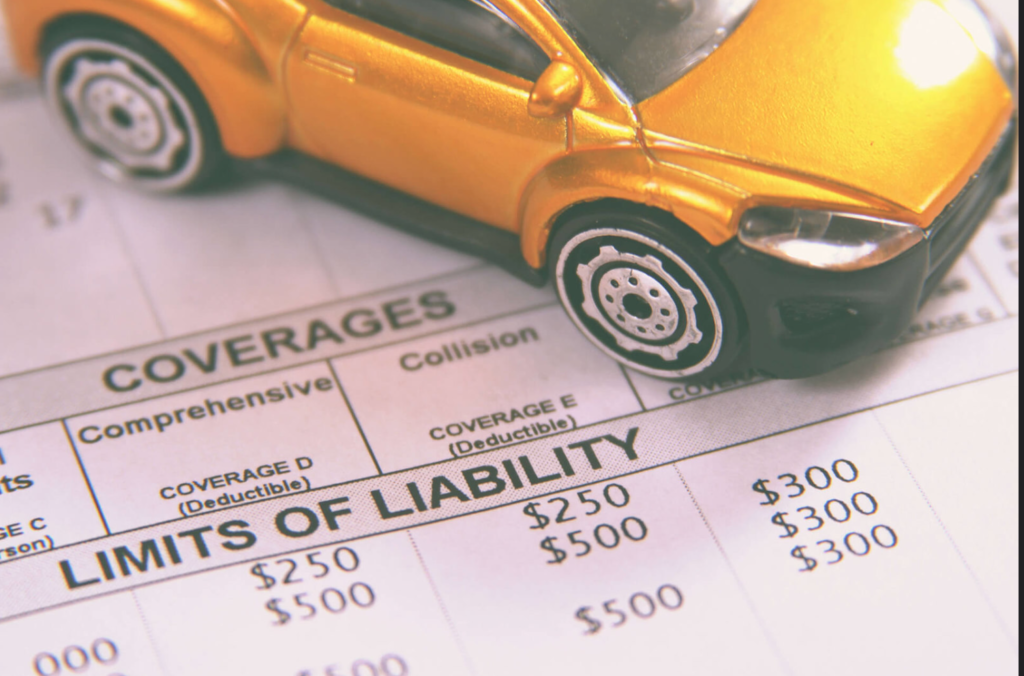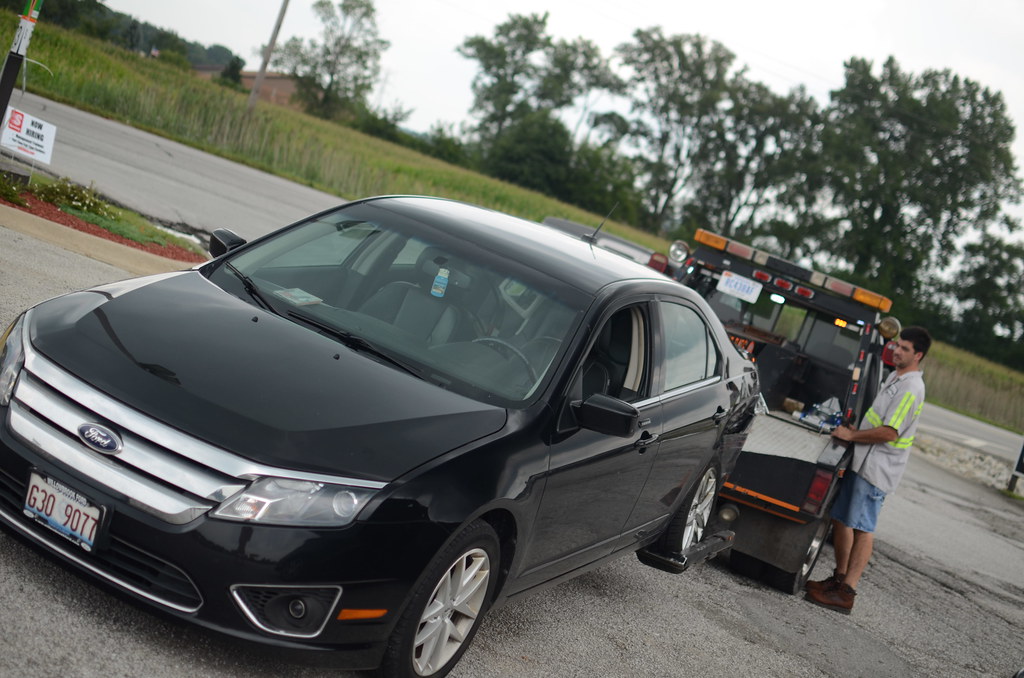After being involved in a serious car accident, your first priority will be to seek medical attention for yourself or any other injured parties in your vehicle. But after seeking care from medical professionals, your next step will be to start communicating with the at-fault party’s insurance company. The insurance company will most likely reach out to you with a settlement offer to pay off the costs associated with the accident, and quite often, this amount is much lower than what you may have been expecting.

Photo by Quoteinspector.com shared via CC BY-ND 2.0
In the aftermath of a serious car accident, most victims are struggling to get their lives back on track, and many people often feel pressured to accept a low settlement offer, just so they can move on with their lives. But if an insurance company offers you far less than what you deserve, the end result is that you will be financially unable to deal with the aftermath of your accident. So how to respond to a low settlement offer?
The first, and most important thing to remember is that you are not obligated to accept the insurance companies offer. If you’re unsure of how to respond to a low settlement offer, then speaking to a skilled personal injury lawyer can help you explore all of your options. In this article, we explore how you can respond to the low settlement offer yourself, and how a personal injury lawyer can help you resolve your case quickly.
WHAT TO DO AFTER A SERIOUS CAR ACCIDENT
You should fully expect that the insurance company will make a low settlement offer the first time they contact you. You can start preparing for that possibility immediately after your accident by:
- Filing a police report at the accident scene
- Getting contact information from all witnesses
- Saving copies of your receipts and medical records related to the accident
- Starting a log of lost wages from your job
- Keeping a pain journal documenting the extent of your injuries and how they affect your daily life.
These records will be important documents to prove the amount of compensation you are rightfully owed.

Photo by Quoteinspector.com Shared CC BY-ND 2.0
ECONOMIC VS NON-ECONOMIC DAMAGES
The damage from a car accident can affect multiple aspects of your daily life. Economic damages relate to a specific monetary harm such as medical expenses or lost wages. Non economic damages are more intangible losses, and as such, are much more difficult to assign a value to.
Pennsylvania and New Jersey define pain and suffering as a non-economic loss.
While many states cap pain and suffering damages in an attempt to keep these types of compensation limited, Pennsylvania and New Jersey have no caps on non-economic damages, with the exception of claims against the government in PA.
WHY DO INSURANCE COMPANIES UNDERVALUE PAIN AND SUFFERING CLAIMS?
It is almost never in the best interest of the insurance company to help you understand your rights, or how valuable your claim may be following a car accident. When they can’t deny your claim outright, they will often undervalue the claim, offering a low settlement offer that covers medical bills, but conveniently leaves out coverage for pain and suffering.
Because pain and suffering are subjective experiences, insurance companies will be likely to undervalue them in their initial offer. It’s difficult for anyone to truly understand the amount of suffering that an accident can cause, and that makes it all too easy for an insurance company to offer you a lowball settlement.
What makes this even more difficult is that victims themselves often undervalue their pain and suffering claims.
HOW TO DETERMINE PAIN AND SUFFERING
What exactly do pain and suffering damages cover? This can be a tricky question, and victims often undervalue their own pain and suffering, at their own expense. When your injuries result in a decrease in your ability to perform or enjoy activities of daily life, the toll on your overall health and mental well being can be difficult to quantify.
If you cannot stand long enough to cook dinner for your family anymore, how much is that worth? If you have to attend therapy sessions for severe PTSD after an accident, how long will you need to see a specialist, and at what cost? These are the kinds of questions you will need to answer to properly account for your pain and suffering damages. A skilled personal injury lawyer can help you accurately document the pain and suffering you’ve experienced after your car accident.

Photo by Klearchos Kapoutsis shared via CC BY 2.0
HOW DO INSURANCE COMPANIES TRY TO AVOID PAYING FOR SERVICES?
Insurance companies have several strategies they will use when offering you a low settlement, in an effort to get you to accept. They may:
- Try to catch you off guard: Insurance agents will often be overly friendly when they first reach out, in an attempt to get you to let your guard down, and give you vague assurances that they will take care of you.
-
- Use delay tactics: Getting you to settle is the insurance company’s priority number one. They know you may be overwhelmed by mounting medical bills, facing a loss of income or a loss of your vehicle, or suffering from ongoing medical issues. They also know that you may be more desperate to settle when facing mounting bills, and will use this to pressure you to take whatever they offer you.
- Ask for a recorded statement: If the insurance company asks you for a recorded statement, that should be an immediate red flag for you. This is a tool that insurance companies often use to devalue claims. They will often ask you pointed questions that seem harmless, but will actually be used against you at a later date.
- Convince you not to receive certain medical treatment: The insurance company may try to tell you to stop certain treatments, or say that the insurance company won’t pay for the medical care you need. The company will then use the fact that you didn’t get treatment to later prove that your injuries weren’t that bad.
- Offer a quick, low settlement: Insurance companies are relying on the fact that you may be vulnerable after a severe accident, and will make the easiest, quickest decision – to accept their low settlement offer. Once you’ve accepted the low settlement offer, you won’t be able to pursue a higher amount, if your injuries turn out to be more extensive than you first realized.

“Car Accident 060” by Michael Kappel is marked with CC BY-NC 2.0.
HOW TO RESPOND TO A LOW SETTLEMENT OFFER
Once you have received a settlement offer by phone or email, take the time to compare it to your records to determine if you feel the offer is fair and will properly cover your costs. Then you can determine how to respond to the low settlement offer.
Remember, you have the legal right to reject any settlement offer from an insurance company, and to present a counteroffer with the payment you believe you deserve.
If you have decided not to settle, a formal business letter is often the best rebuke. The letter should state:
- Why the offer is unacceptable
- Refute any incorrect statements made by the insurance agency and provide proof of their errors in the form of receipts, or records
- Provide a counteroffer, and why it is appropriate
A car accident injury lawyer can help you draft this letter if needed. And if your negotiations with the insurance agency stall, you may wish to proceed with a personal injury lawsuit.
HOW A PERSONAL INJURY LAWYER CAN HELP YOU REJECT A LOWBALL SETTLEMENT OFFER
The mere presence of a lawyer’s letterhead on a letter rejecting a lowball settlement offer can alter the way that insurance agencies handle your claim. And in the case that you wish to proceed with a lawsuit, you will have already been working with a lawyer who understands the particulars of your case.
With over 80 years of experience in car accident cases, the car accident attorneys at Thistle Law have the resources and knowledge to investigate your accident to the fullest, and will be able to help you document and prove all the expenses related to your accident so you can get the compensation you deserve. We can take care of dealing with the insurance company while you focus on your health and recovery. Contact our office for a free consultation today by calling 215-525-6824 or by filling out this form.

